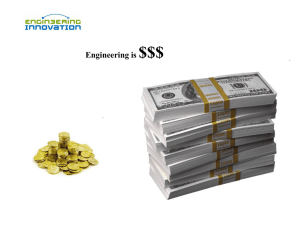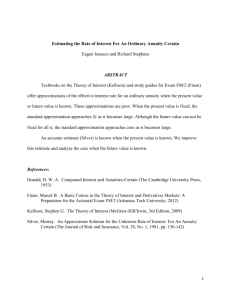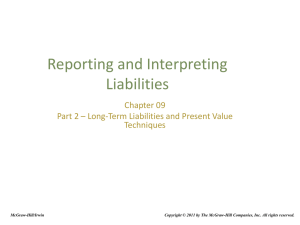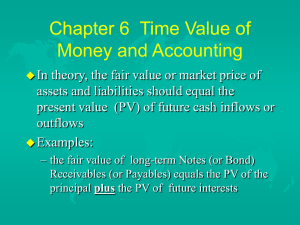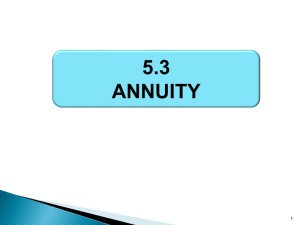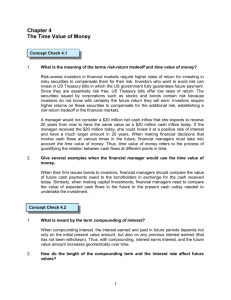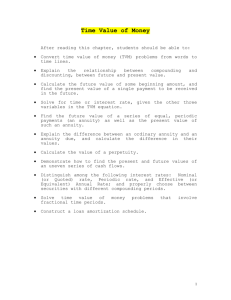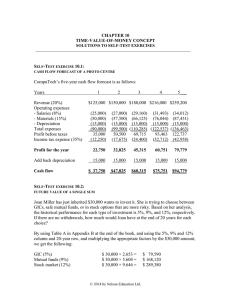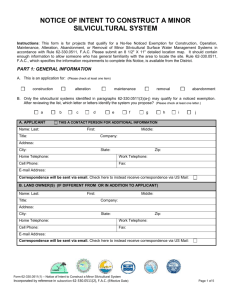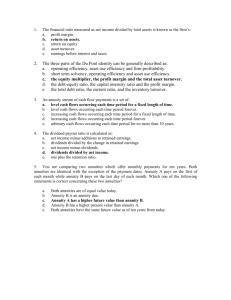Steps for Solving A TVM Problem
advertisement
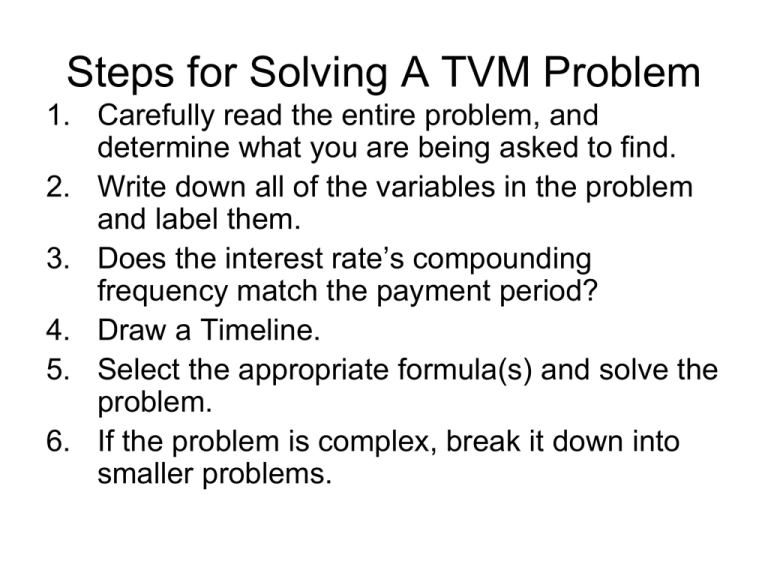
Steps for Solving A TVM Problem 1. Carefully read the entire problem, and determine what you are being asked to find. 2. Write down all of the variables in the problem and label them. 3. Does the interest rate’s compounding frequency match the payment period? 4. Draw a Timeline. 5. Select the appropriate formula(s) and solve the problem. 6. If the problem is complex, break it down into smaller problems. A Simple Example (Chapter 5 Self-Test Problem 1) Assume you deposit $10,000 today in an account that pays 6 percent interest. How much will you have in five years? Self-Test Problem 5-1 1. After reading the problem, it is clear that you are being asked to find a future value. (“…in five years.”) 2. The following variables are given: • • • $10,000 – Present Value 6 percent compounded yearly – the interest rate 5 year – time over which the $10,000 will grow at the 6 percent rate 3. Since this is a lump sum problem, compounding frequency is not much of a issue. Self-Test Problem 5-1 4. 5. The appropriate formula is: 6. This is not a complex problem A More Complex Example (Chapter 6 Problem 52) A 5-year annuity of ten $7,000 semiannual payments will begin 8 years from now, with the first payment coming 8.5 years from now. If the discount rate is 10 percent compounded monthly, what is the value of this annuity five years from now? What is the value three years from now? What is the current value of the annuity? Problem 6-52 1. This is a present value of an annuity problem that is asking us to find the PV at different points along the timeline. 2. N = 10; PMT = $7,000; Annuity is deferred 8 years; 1st payment in 8.5 years; APR = 10% cpd monthly 3. No payments are made semiannually but interest compounds monthly. 6 0.10 SA Rate = 1 1 5.105331332% 12 Problem 6-52 Problem 6-2 5. Appropriate Formula: 1 1 $53, 776.72243 PVA Year 8 $7000 10 0.0511... 0.0511... 1.0511... $53, 776.72243 $39,888.33 PVYear 5 6 1.0511... PVYear 3 $53, 776.72243 PVYear 0 $53, 776.72243 1.0511... 10 1.0511... 16 $32, 684.88 $24, 243.67
